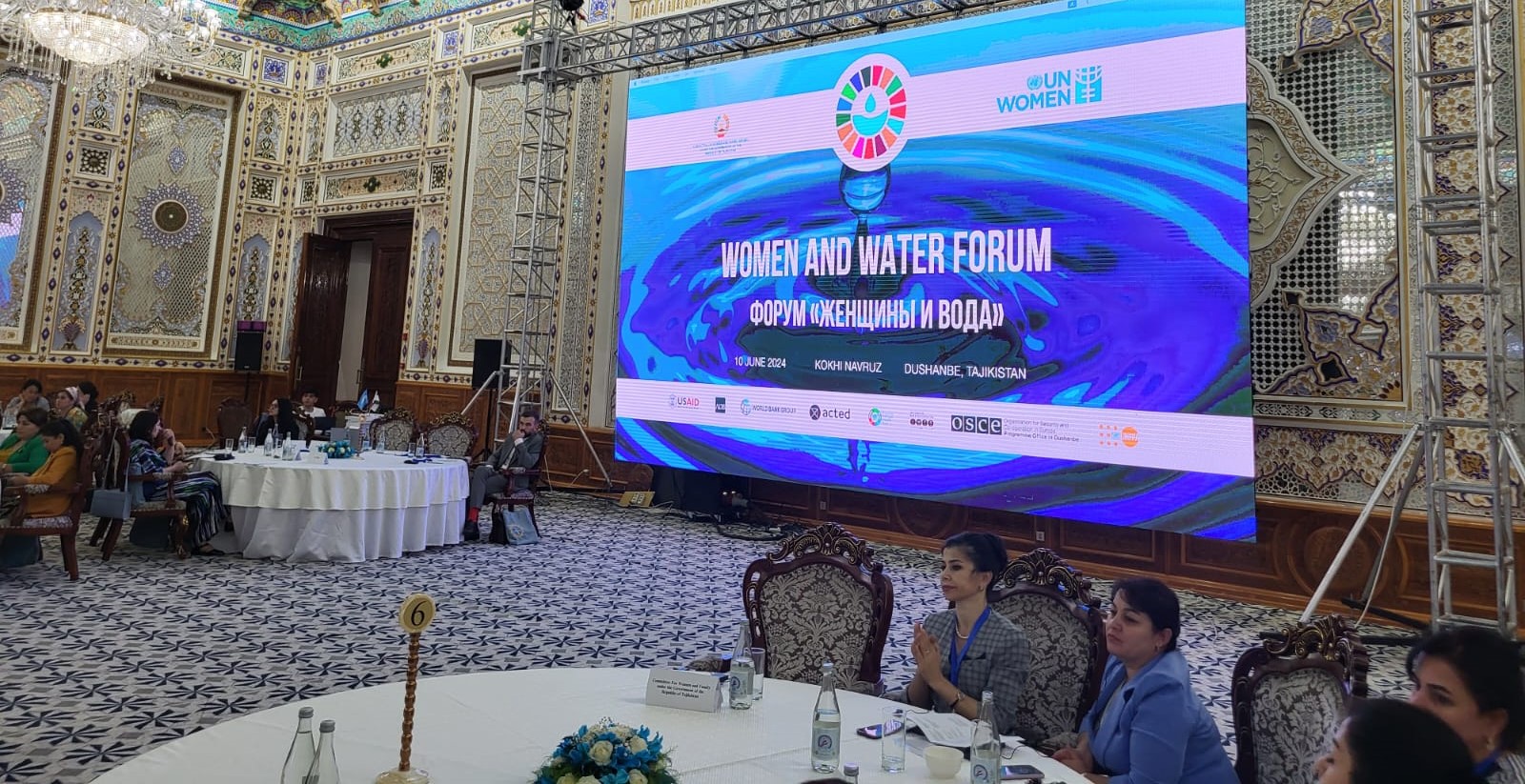The International Forum “Women and Water” took place within the Third High-level International Conference on the International Decade of Action “Water for Sustainable Development” 2018-2028 in Dushanbe on June 10, 2024.

Co-organizers Committee for Women and Family Affairs under the Government of the Republic of Tajikistan, Ministry of Finance of the Republic of Tajikistan and UN Women in partnership with ACTED, ADB, AKDN, IWPR, UNFPA, UNRCCA, USAID, World Bank.
Statement of Tais Reznikova, the Water Initiative Support Program Manager, the Regional Environmental Centre for Central Asia (CAREC)
I would like to continue and talk a little bit about the Central Asian countries. It is not a secret that in our region women are often underrepresented in transboundary water management, especially at higher levels of decision-making. One key reason is the persistent perception of traditional gender roles, at both local levels, but also in transboundary negotiations. Women often occupy administrative roles within the water sector in general. A very significant issue is women's limited access to knowledge and opportunities to represent their agencies at external events, regional, and international conferences, as evidenced by the gender composition of delegations.
It is important to talk about local water diplomacy as well, at the grassroots level, rural women’s participation in community-based water management, such as water associations, is often disproportionate compared to their involvement in water provision and farming. Women perform the majority of crop operations on family farms but only 13% of dekhan farms are headed by women. Involvement of women in Basin Councils across the region also ranges from 0% to 20%.
Despite the fact that there are no legal barriers at the national level, policies do not adequately promote the participation of women, and in the end we have just a few female managers participating in the transboundary water dialogue. We need to address the challenges we still face but also highlight the success on gender mainstreaming in the region.
There are many positive initiatives in the region, both government-led and driven by women professionals. There is also increased attention to the education of girls and political support for gender mainstreaming, reflected in national development strategies and legislation. The distinguished panelists will talk about it.
In 2021, the OSCE, in partnership with CAREC and SIWI, established the Network of Women in Water Management for Central Asia and Afghanistan. The Network aims to foster inclusive and participatory water governance, and empower women to take leadership positions.
When establishing our Network, we asked the members about the barriers they face in career development. The survey revealed common issues such as nepotism, lack of opportunities to get relevant work experience, improper hierarchy and other issues. Our strategy was to equip the Network members with knowledge and skills and enhance the professional exchange between them to overcome the barriers and take leadership in the sector.
The Network, though still young, from the very beginning became part of the global Network. We have received immense support and inspiration from it, from the Nile Network, which was established earlier and represented by senior water diplomats. Coming from different regions we share similar challenges regarding women’s participation, and such global platforms bring a lot of value to our region.
The Network has existed for three years now, and we can see its impact in elevating women's roles in decision-making in water management. Our members actively build the capacities of women managers at the local level, organize seminars and master classes, and promote gender inclusion in the region. Additionally, we observe how Network members' careers are growing, with many now holding senior positions and serving as role models for young women water professionals.
With this we hope to inspire the participants and encourage all of us to continue our efforts to bring more women to the water decision-making.
To learn more please contact Tais Reznikova.
